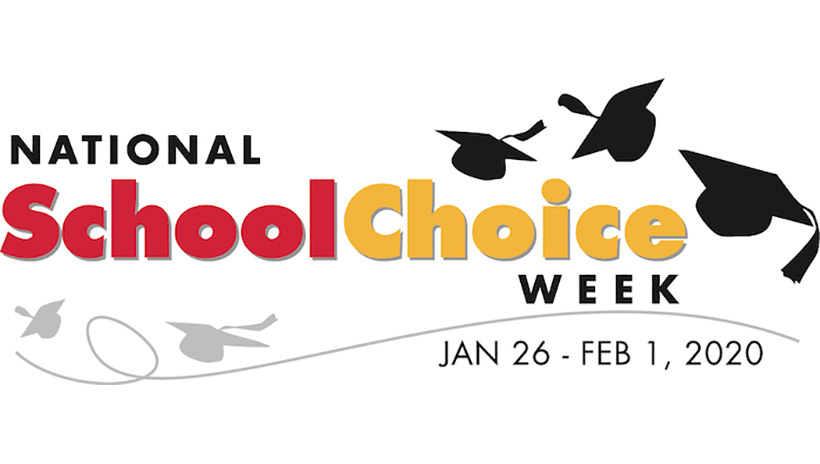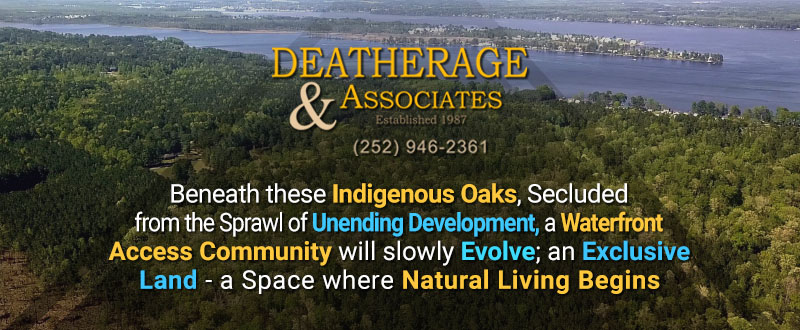In Difficult Times Good People gravitate towards Absolute Truth
National School Choice Week: About 20% of N.C. Students Choose, Private, Charter or Homeschools
Publisher's note: This post appears here courtesy of the Carolina Journal, and written by Lindsay Marchello.

The John Locke Foundation is kicking off National School Choice Week with a talk from Robert Luddy, the creator of several charter and private schools in North Carolina.
The event is one of 2,313 celebrations scheduled statewide Jan. 26 through Feb. 1. Nationally, it's set to be the largest-ever celebration of educational opportunity and diversity, with a staggering 13.7 million participants, show numbers from NSCW's national advocacy organization.
Nothing influences a community more positively than a good school, Luddy points out in his lecture, "Excellent Schools are the Best Community Development Programs." On Monday, Jan. 27, the founder of Franklin Academy, St. Thomas More Academy, and Thales Academy will discuss how neighborhoods that can't meet student needs should have private school options.
School choice has exploded in North Carolina over the past 24 years. Since 1996, 196 public charter schools have taken root around the state. This decade's growth is attributable to the state's 2011 decision to lift a cap limiting North Carolina to just 100 charters.
More than 116,000 North Carolina children attend charter schools, said Terry Stoops, vice president of research and director of education studies at JLF. Stoops is a co-founder of Carolina Charter Academy in Angier.
Wait lists for charter schools statewide are packed out at 65,000 kids.
"Both facts suggest that charter schools are part of the fabric of public schooling in North Carolina," Stoops said.
Twenty percent of all students in the state attend a charter, private, or home school, he said.
"That percentage will grow as more parents access resources that enable them to select the best school for their children," Stoops said.
It's important for parents to be aware of their options, said Rhonda Dillingham, executive director of the N.C. Association for Public Charter Schools. No one should be forced to send their child to a school strictly on the basis of zip code, she says.
North Carolinians are increasingly supportive of options outside traditional public schools, show data from the American Federation for Children.
AFC's sixth annual National School Choice poll surveyed 1,275 likely November 2020 voters Jan. 7-13 about their views on school choice. The margin of error is plus or minus 3.5%.
Support for school choice continues to grow, with 69% of respondents favoring the concept. That's up two points from last year's survey.
The poll also showed overwhelming support for publicly funded private school vouchers, tax credit scholarships, and Education Savings Accounts. Eighty percent of respondents favored these options, with 48% saying they should be available to low-income and middle-class families.
In North Carolina, low-income families have access to the Opportunity Scholarships. The publicly funded vouchers provide low-income families with up to $4,200 a year to help pay for private school tuition or fees.
The state also offers two special needs scholarships, the Children with Disabilities Scholarship Grant and the Special Needs Education Savings Account.
Although school choice has become popular in the state, it still has detractors.
Opponents of the Opportunity Scholarship program challenged its constitutionality in 2014. The case went before the N.C. Supreme Court, where Opportunity Scholarships were upheld in a 4-3 split. Despite the legal victory, Gov. Roy Cooper, a Democrat, has vocally opposed funding the program.
Charter schools have also come under fire.
Several Democratic lawmakers have called for a moratorium on new charters to study effects the alternatives have on school districts. Critics argue charter schools drain money away from traditional public schools.
But, thanks to broad public support, school alternatives aren't in any immediate danger, Stoops said.
"Despite Democratic fantasies of eliminating school choice options, the strong demand for school choice suggests that it is here to stay," Stoops said.
Click HERE for more information about NSCW events in your neighborhood.
Go Back

The John Locke Foundation is kicking off National School Choice Week with a talk from Robert Luddy, the creator of several charter and private schools in North Carolina.
The event is one of 2,313 celebrations scheduled statewide Jan. 26 through Feb. 1. Nationally, it's set to be the largest-ever celebration of educational opportunity and diversity, with a staggering 13.7 million participants, show numbers from NSCW's national advocacy organization.
Nothing influences a community more positively than a good school, Luddy points out in his lecture, "Excellent Schools are the Best Community Development Programs." On Monday, Jan. 27, the founder of Franklin Academy, St. Thomas More Academy, and Thales Academy will discuss how neighborhoods that can't meet student needs should have private school options.
School choice has exploded in North Carolina over the past 24 years. Since 1996, 196 public charter schools have taken root around the state. This decade's growth is attributable to the state's 2011 decision to lift a cap limiting North Carolina to just 100 charters.
More than 116,000 North Carolina children attend charter schools, said Terry Stoops, vice president of research and director of education studies at JLF. Stoops is a co-founder of Carolina Charter Academy in Angier.
Wait lists for charter schools statewide are packed out at 65,000 kids.
"Both facts suggest that charter schools are part of the fabric of public schooling in North Carolina," Stoops said.
Twenty percent of all students in the state attend a charter, private, or home school, he said.
"That percentage will grow as more parents access resources that enable them to select the best school for their children," Stoops said.
It's important for parents to be aware of their options, said Rhonda Dillingham, executive director of the N.C. Association for Public Charter Schools. No one should be forced to send their child to a school strictly on the basis of zip code, she says.
North Carolinians are increasingly supportive of options outside traditional public schools, show data from the American Federation for Children.
AFC's sixth annual National School Choice poll surveyed 1,275 likely November 2020 voters Jan. 7-13 about their views on school choice. The margin of error is plus or minus 3.5%.
Support for school choice continues to grow, with 69% of respondents favoring the concept. That's up two points from last year's survey.
The poll also showed overwhelming support for publicly funded private school vouchers, tax credit scholarships, and Education Savings Accounts. Eighty percent of respondents favored these options, with 48% saying they should be available to low-income and middle-class families.
In North Carolina, low-income families have access to the Opportunity Scholarships. The publicly funded vouchers provide low-income families with up to $4,200 a year to help pay for private school tuition or fees.
The state also offers two special needs scholarships, the Children with Disabilities Scholarship Grant and the Special Needs Education Savings Account.
Although school choice has become popular in the state, it still has detractors.
Opponents of the Opportunity Scholarship program challenged its constitutionality in 2014. The case went before the N.C. Supreme Court, where Opportunity Scholarships were upheld in a 4-3 split. Despite the legal victory, Gov. Roy Cooper, a Democrat, has vocally opposed funding the program.
Charter schools have also come under fire.
Several Democratic lawmakers have called for a moratorium on new charters to study effects the alternatives have on school districts. Critics argue charter schools drain money away from traditional public schools.
But, thanks to broad public support, school alternatives aren't in any immediate danger, Stoops said.
"Despite Democratic fantasies of eliminating school choice options, the strong demand for school choice suggests that it is here to stay," Stoops said.
Click HERE for more information about NSCW events in your neighborhood.
Latest Op-Ed & Politics
|
The Missouri Senate approved a constitutional amendment to ban non-U.S. citizens from voting and also ban ranked-choice voting.
Published: Friday, April 19th, 2024 @ 12:33 pm
By: Daily Wire
|
|
Democrats prosecuting political opponets just like foreign dictrators do
Published: Friday, April 19th, 2024 @ 10:58 am
By: John Steed
|
|
populist / nationalist / sovereigntist right are kingmakers for new government
Published: Friday, April 19th, 2024 @ 10:04 am
By: John Steed
|
|
18 year old boy who thinks he is girl planned to shoot up elementary school in Maryland
Published: Friday, April 19th, 2024 @ 8:46 am
By: John Steed
|
|
Biden assault on democracy continues to build as he ramps up dictatorship
Published: Friday, April 19th, 2024 @ 8:26 am
By: John Steed
|
|
illegal alien "asylum seeker" migrants are a crime wave on both sides of the Atlantic
Published: Thursday, April 18th, 2024 @ 8:10 am
By: John Steed
|
|
UNC board committee votes unanimously to end DEI in UNC system
Published: Thursday, April 18th, 2024 @ 7:54 am
By: John Steed
|
|
this is the propagandist mindset of MSM today
Published: Wednesday, April 17th, 2024 @ 3:04 pm
By: John Steed
|






















